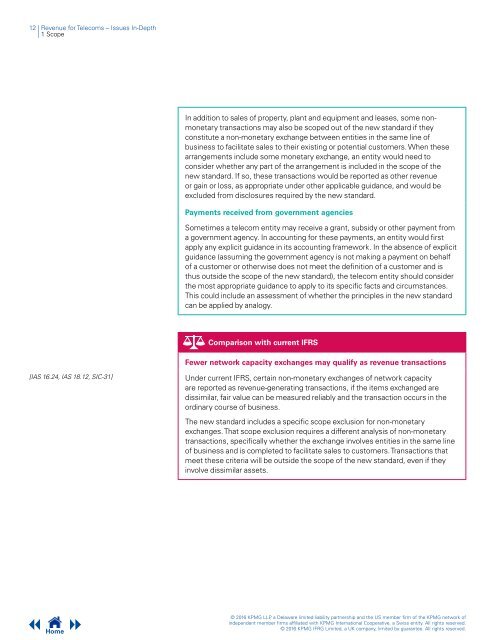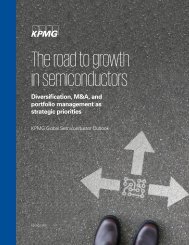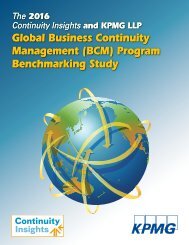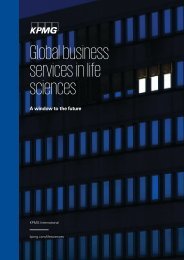Revenue for Telecoms
2cdncba
2cdncba
You also want an ePaper? Increase the reach of your titles
YUMPU automatically turns print PDFs into web optimized ePapers that Google loves.
12 | <strong>Revenue</strong> <strong>for</strong> <strong>Telecoms</strong> – Issues In-Depth<br />
| 1 Scope<br />
In addition to sales of property, plant and equipment and leases, some nonmonetary<br />
transactions may also be scoped out of the new standard if they<br />
constitute a non-monetary exchange between entities in the same line of<br />
business to facilitate sales to their existing or potential customers. When these<br />
arrangements include some monetary exchange, an entity would need to<br />
consider whether any part of the arrangement is included in the scope of the<br />
new standard. If so, these transactions would be reported as other revenue<br />
or gain or loss, as appropriate under other applicable guidance, and would be<br />
excluded from disclosures required by the new standard.<br />
Payments received from government agencies<br />
Sometimes a telecom entity may receive a grant, subsidy or other payment from<br />
a government agency. In accounting <strong>for</strong> these payments, an entity would first<br />
apply any explicit guidance in its accounting framework. In the absence of explicit<br />
guidance (assuming the government agency is not making a payment on behalf<br />
of a customer or otherwise does not meet the definition of a customer and is<br />
thus outside the scope of the new standard), the telecom entity should consider<br />
the most appropriate guidance to apply to its specific facts and circumstances.<br />
This could include an assessment of whether the principles in the new standard<br />
can be applied by analogy.<br />
Comparison with current IFRS<br />
Fewer network capacity exchanges may qualify as revenue transactions<br />
[IAS 16.24, IAS 18.12, SIC-31]<br />
Under current IFRS, certain non-monetary exchanges of network capacity<br />
are reported as revenue-generating transactions, if the items exchanged are<br />
dissimilar, fair value can be measured reliably and the transaction occurs in the<br />
ordinary course of business.<br />
The new standard includes a specific scope exclusion <strong>for</strong> non-monetary<br />
exchanges. That scope exclusion requires a different analysis of non-monetary<br />
transactions, specifically whether the exchange involves entities in the same line<br />
of business and is completed to facilitate sales to customers. Transactions that<br />
meet these criteria will be outside the scope of the new standard, even if they<br />
involve dissimilar assets.<br />
Home<br />
© 2016 KPMG LLP, a Delaware limited liability partnership and the US member firm of the KPMG network of<br />
independent member firms affiliated with KPMG International Cooperative, a Swiss entity. All rights reserved.<br />
© 2016 KPMG IFRG Limited, a UK company, limited by guarantee. All rights reserved.







